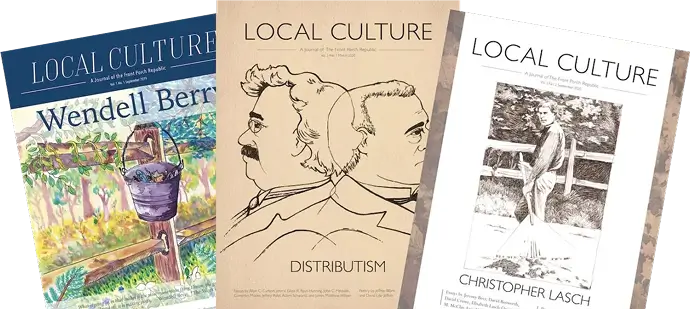Paul Krause is a teacher and Editor-in-Chief of VoegelinView. He is also the author of Muses of a Fire: Essays on Faith, Film, and Literature (Stone Tower Press, 2024),Finding Arcadia: Wisdom, Truth, and Love in the Classics (Academica Press, 2023) and The Odyssey of Love: A Christian Guide to the Great Books (Wipf and Stock, 2021).
Paul Krause
Articles by Paul Krause
Speaking Responsibly about Religion and Politics: A Review of Who’s Afraid of Christian Nationalism?
This driving principle of love and human flourishing, rooted in the Christian understanding of humanity being made in the image of God, has spurred the great social and political reform…
The Pantheon of Ancient Wisdom
The liberty and justice which republics are erected to safeguard requires, as Milton and the Founders knew, a moral, virtuous, and religious citizenry. Without this moral and virtuous spirit, the…
Christians and the Classics
“Truth, wherever it is found, belongs to God.” This is true, then, when dealing with ancient writings of cultural value and significance. The truth and beauty found therein belong to…
Shame and Exceptionalism: Livy’s Subversive History for Liberty
Livy asserts that shamelessness led to decadence which, in turn, led to greed and eventually devolved into demagoguery and tyranny. His assertion that Roman liberty and equality were destroyed by…
Reading with Christian Eyes
Christians, then, have the proper perspective from which to read literature. We can see the profound truths of literature, be they ancient or modern, “pagan” or Christian. Furthermore, we can…
Ayn Rand: Russian Nihilist
Aaron Weinacht’s book is a needed corrective to the public misperception of Ayn Rand as radical capitalist. She was, first and foremost, a radical nihilist. Insofar as Rand embraced capitalism,…
Two Cheers for Sacramentality
I give two cheers for Mark Clavier’s timely and eternal reminder to us that we should seek the encounter with God in the world; it may just give us a…
Fallen From Eden: Reading the Poetry of Catullus
Catullus is not a saint. He is not a moral poet. But his crudity and madness still dance with the shadows of truth and echo with the cry of the…
Finding Arcadia: The Garden in the Cosmos in Latin Literature
Paul Krause examines the politics of Latin literature and discovers a desire for peace and joy, a peace and joy found in an intimate environment of beauty which the poets,…
The Front Porch and the American Dream
Perhaps, just perhaps, COVID has restored some of the beauty and desirability of the front porch.
Shakespeare and the Pastoral Idyll
Why does Shakespeare offer us love instead of politics? Love is intimate. Love is about attachment. Love is about beauty. Love is local.
Thomas Aquinas: Front Porch Cosmologist
Thomas’ cosmological theology was thoroughly enchanted and magical, and it is his enchanted and magical view of the cosmos that we so critically need today.
Yearning for Eden: Horace and the Romance of Agrarianism
Deep within the Western psyche and tradition is this yearning for return. Horace, more than any other of the grandiose poets of antiquity, captured that call, that cry, for return—a…
The Forgotten Conservative Value: Wilderness
The Wilderness calls forth the bond of community, labor, and leisure. It calls forth the best in humanity, so long as humans understand their relationship to the Wilderness.
Culture and the Front Porch
What is culture? What hath attachment to do with culture? Why are front porches necessary for culture? Culture is something vibrant. Something living. Something that runs through the veins of…
Conservatism and the Ecological Crisis
Conservation is at the heart of conservatism. And the root of our contemporary ecological crisis is a careless, profligate mode of relating to the world; Francis Bacon would be proud…
Nationalism Against Imperialism
“For centuries, the politics of Western nations have been characterized by a struggle between two antithetical vision of world order: an order of free and independent nations, each pursuing the…

